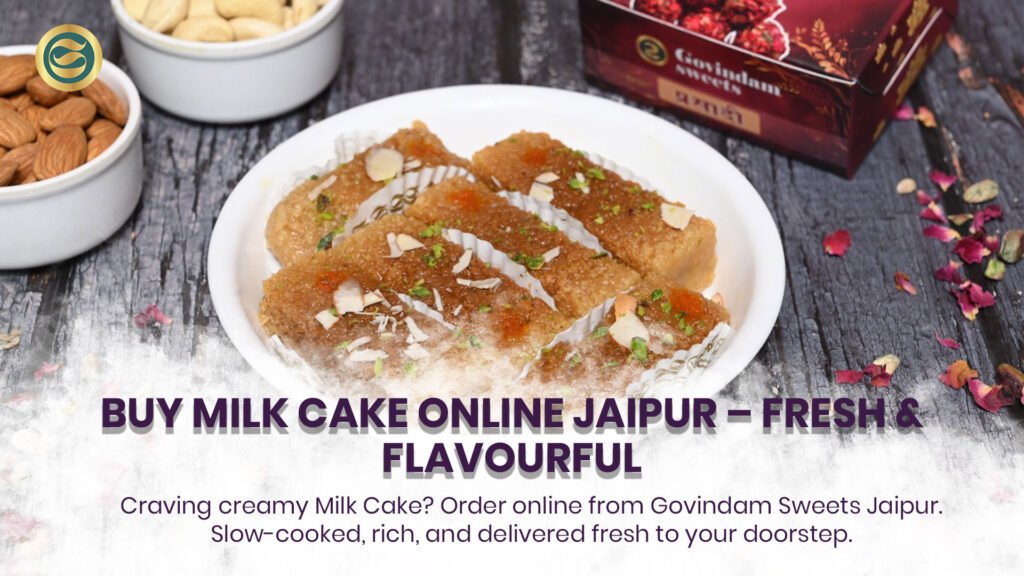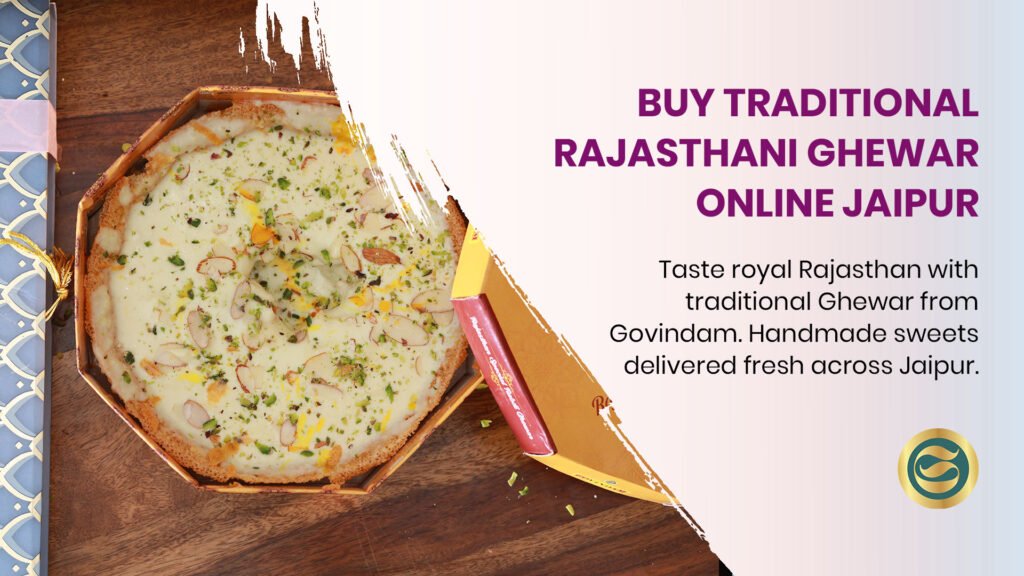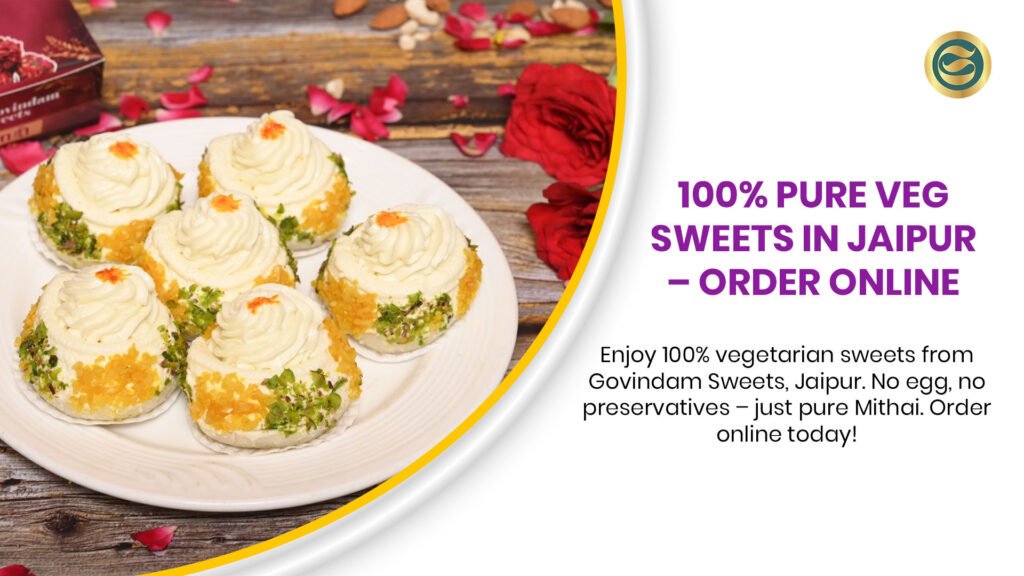Govindam Ghewar: The Exquisite Rajasthani Delicacy

Master the authentic Govindam Ghewar recipe with our step-by-step guide. Learn the secrets of creating this traditional Rajasthani sweet at home. Discover tips for perfecting the crispy texture and sweet syrup of this delicate disc-shaped dessert. Impress your family and friends with your homemade Ghewar skills.
Authentic Govindam Ghewar Recipe: A Traditional Rajasthani Delight
Ghewar, a beloved Rajasthani sweet, is a testament to the rich culinary heritage of India. Known for its intricate honeycomb texture and delightful sweetness, Ghewar is a staple during festivals like Teej and Raksha Bandhan. Today, we’ll guide you through the Govindam Ghewar recipe, helping you create this exquisite dessert in your own kitchen.
Understanding Ghewar: The Crown Jewel of Rajasthani Sweets
The Cultural Significance of Ghewar
Ghewar is more than just a sweet; it’s a cultural icon in Rajasthan. This disc-shaped delicacy is deeply intertwined with festivals and celebrations. Understanding its importance adds depth to the cooking experience. Learn more about Indian sweets and desserts and their cultural significance.
Key Ingredients for Authentic Govindam Ghewar
To create an authentic Ghewar, you’ll need:
- All-purpose flour (Maida)
- Ghee
- Water
- Sugar (for syrup)
- Milk (optional, for rabri topping)
- Cardamom powder
- Saffron (optional)
Preparing for Ghewar Making
Essential Equipment for Ghewar Preparation
Before starting your Govindam Ghewar recipe, ensure you have:
- A large, deep pan for frying
- A Ghewar mold or a squeeze bottle
- A whisk or electric mixer
- A fine-mesh strainer
- A large plate for draining excess oil
Tips for Perfect Ghewar Batter
The key to great Ghewar lies in its batter:
- Sieve the flour to remove lumps
- Use chilled water for the batter
- Whisk the batter thoroughly for a smooth consistency
- Let the batter rest for 15-20 minutes before use
Step-by-Step Govindam Ghewar Recipe
Preparing the Batter
- In a large bowl, mix 2 cups of all-purpose flour with 1/4 cup melted ghee
- Gradually add 1 1/2 cups of chilled water while whisking continuously
- Beat the mixture until smooth and of pouring consistency
- Let the batter rest in the refrigerator for 15-20 minutes
Frying the Ghewar
- Heat ghee in a large, deep pan
- Pour the batter in a thin stream, moving in circles to create a web-like pattern
- Fry until golden and crisp
- Carefully remove and drain excess oil on a plate
Preparing the Sugar Syrup
- In a separate pan, dissolve 2 cups of sugar in 1 cup of water
- Boil until it reaches one-string consistency
- Add cardamom powder and saffron for flavor
Assembling the Ghewar
- Dip the fried Ghewar in warm sugar syrup
- Allow excess syrup to drain
- Optionally, top with rabri or sliced nuts
Perfecting Your Ghewar Technique
Common Challenges in Ghewar Making
As you master this Homemade Rajasthani Ghewar, be aware of common issues:
- Uneven texture: Ensure consistent batter pouring
- Overly greasy Ghewar: Drain properly after frying
- Too sweet or too dry: Balance your syrup consistency
Variations on the Traditional Ghewar Recipe
While mastering the classic recipe, explore these variations:
- Malai Ghewar: Top with thickened cream
- Mawa Ghewar: Add khoya for richness
- Chocolate Ghewar: A modern twist with cocoa powder
Serving and Storing Your Homemade Ghewar
Presentation Tips for Ghewar
Make your Traditional Ghewar preparation visually appealing:
- Garnish with pistachios or almonds
- Drizzle with saffron-infused milk
- Serve on a traditional silver plate for authenticity
Proper Storage of Ghewar
To maintain freshness:
- Store in an airtight container
- Keep at room temperature for 2-3 days
- Refrigerate for up to a week
- Reheat slightly before serving for best texture
Pairing Ghewar with Traditional Beverages
Classic Accompaniments for Ghewar
Enhance your Ghewar experience with:
- Masala Chai: The perfect balance to the sweetness
- Thandai: A festive drink that complements Ghewar
- Rajasthani Chaach: A savory counterpoint to the sweet Ghewar
Modern Beverage Pairings
For a contemporary twist, try:
- Saffron latte
- Rose-flavored iced tea
- Cardamom-infused coffee
Nutritional Aspects of Ghewar
Understanding Ghewar’s Nutritional Profile
While Ghewar is a treat, it’s good to be aware of its nutritional content:
- High in carbohydrates and fats
- Source of quick energy
- Best enjoyed in moderation as part of a balanced diet
Healthier Alternatives in Ghewar Making
For a lighter version, consider:
- Using whole wheat flour instead of all-purpose flour
- Substituting some sugar with natural sweeteners
- Opting for baked Ghewar instead of fried
By following this Govindam Ghewar recipe, you’re not just making a dessert; you’re participating in a rich cultural tradition. Whether you’re celebrating a festival or simply indulging in a sweet treat, your homemade Ghewar is sure to impress.
Ready to try your hand at making Ghewar but short on time? Visit our online store to order authentic, handcrafted Ghewar delivered right to your doorstep.
Order Authentic Ghewar | For Custom Orders: +91-7976304072
Experience the true taste of Rajasthan with Govindam Sweets’ traditional Ghewar. Order now and savor the authentic flavors of this classic Indian dessert!
| Ghewar Type | Characteristics | Best Enjoyed |
|---|---|---|
| Plain Ghewar | Crispy, honeycomb texture | With sugar syrup |
| Malai Ghewar | Topped with creamy rabri | Chilled |
| Mawa Ghewar | Rich, dense texture | Slightly warm |
| Chocolate Ghewar | Modern fusion flavor | As a unique dessert |
Remember, while making Ghewar at home can be a rewarding experience, it requires practice and patience. Don’t be discouraged if your first attempt isn’t perfect – each Ghewar you make will bring you closer to mastering this Govindam-style sweet disc.
For more information on the cultural significance of sweets in Indian cuisine, visit the Wikipedia page on Indian cuisine.












